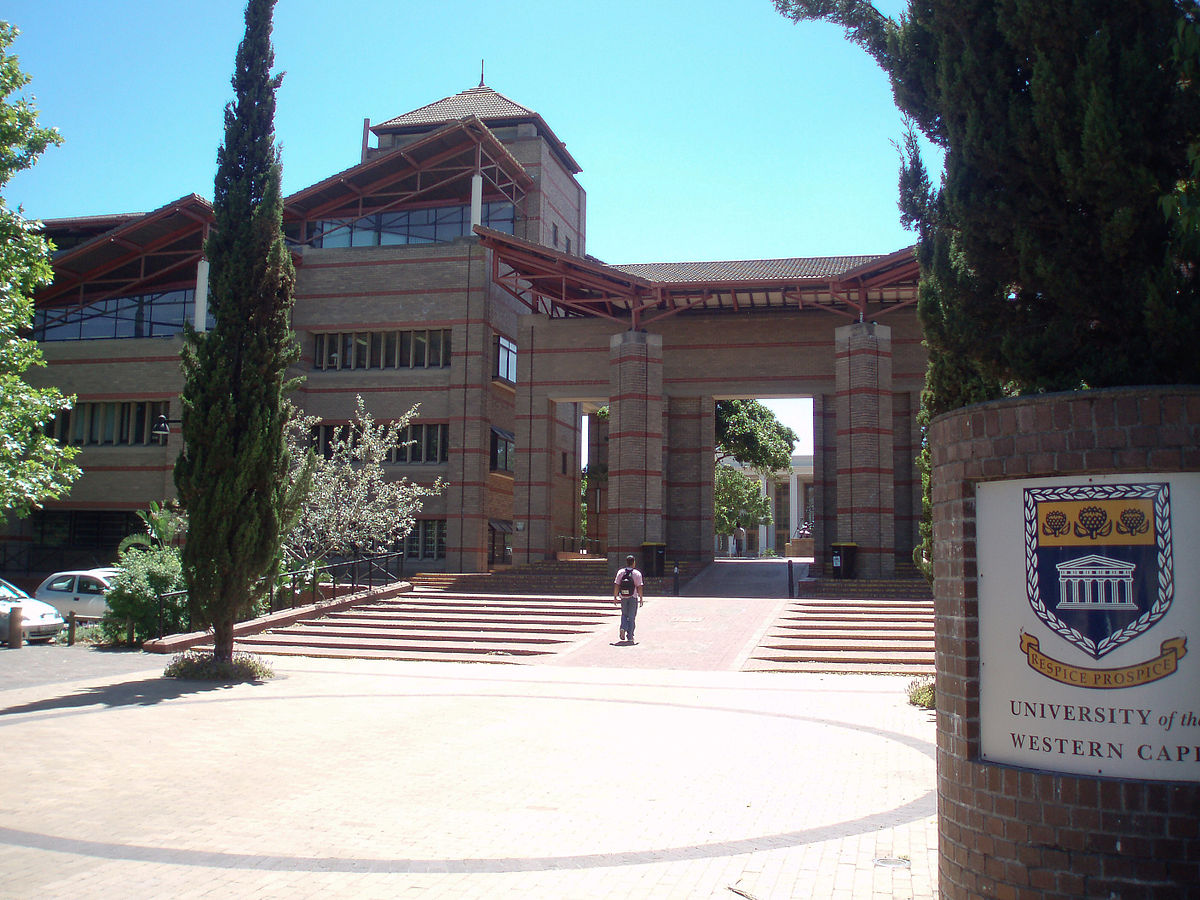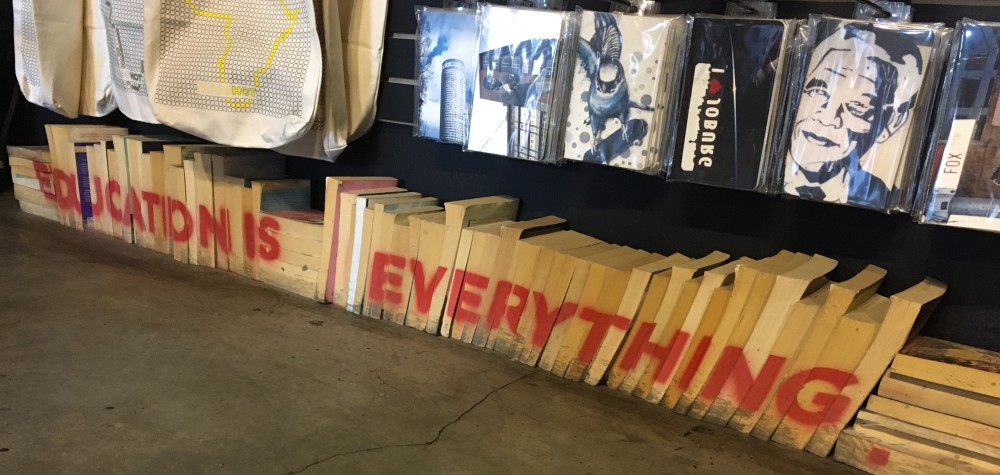University of the Western Cape
University of the Western Cape
On May 31, after visiting the University of Cape Town, we boarded our bus to journey to the University of the Western Cape. Once we crossed the gates, we recognized the differences between this campus and University of Cape Town, as this was a bit more suburban, and in this way, spread out. The University of the Western Cape was created in 1960 by the South African government for biracial students. Other predominant institutions in the area, such as Stellenbosch University and the University of Cape Town were established for white students (albeit one for Afrikaans and one for English speaking students, respectively). As of 1994, this university is no longer segregated and educates 22,000 students, both undergraduates and post graduates). Our tummies rumbling, we made our way into UWC’s School of Education building, where we met for a conversation with Prof Pamela Dube (Deputy Vice Chancellor of Student Development and Support), Mr. Leolyn Jackson (from the International Relations office), Prof Beverley Thaver (Deputy Dean Research-Education), Seamus Needham (Institute for Post-School Studies), Dr. Neetha Ravjee (Senior Lecturer-Education), and Dr. Bradley Rink (Geography & Environmental Studies).
Throughout these brief conversations, the delegation from CSHPE was given an overview of the history of South African Education, with a strong emphasis on the creation of the now in-place Constitutional Democracy, which started in 1994. In addition to touching on macro level policy changes, Dr. Beverley Thaver touched on micro level challenges, including governance, accountability, distributive justice and institutional culture. In addition, it was interesting to hear how the #FeesMustFall campaign, a movement that started at the University of Witwatersrand in Johannesburg, Gauteng, had impacted this campus from Dr. Bradley Rink, a faculty member in the Faculty of Arts, whose research focuses on Geography and Environmental Studies. In this way, he mentioned the emphasis on “meeting students where they are” both figuratively and literally, especially in this uncertain time in South African Higher Education. This is a theory that American educators and administrators would be keen to embrace on our own campuses, especially when it comes to the prevalent themes of access and equity.
Once again, we saw the hospitable nature of the South African people in practice, as the School of Education had provided juice, pastries and other munchies for us to enjoy as we told their delegation about our own work from the classroom in Ann Arbor, to the South African National Resource Center’s First Year Experience Conference in Johannesburg, the week before.

Our brief visit was an enriching one, as we saw a growing urban campus that was trying to rid itself of past influences and embrace a transformative and innovative dialogue. As is the case with many of the institutions CSHPE visited, the various campaigns (#FeesMustFall, #RhodesMustFall) are forcing lecturers and administrators to come face to face with the tasks of decolonizing and preparing their respective institutions for globalization. At the crux of all this is the duty for campuses to educate students, albeit amidst closings and protests. As with the other campuses both urban, suburban and rural, UWC faces these challenges with candor and innovation.
–Ellie Barton, master’s student
